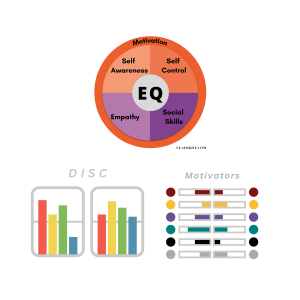
The typical approach to emotions at work is so common it has become “classic”: you come to work to do the company’s work, so put your own feelings to the side. If something emotional comes up you need to “manage” it (meaning suppress it or compartmentalize it or take it to the bathroom or outside for a break) and return to work as quickly as possible.
The classic approach is repeated and often unquestioned—until it’s obvious that it doesn’t work. Big news events interrupt: protests, war, pandemic or a local act of violence. Social media and phone texts and chats can interrupt too, and they tend to trigger strong feelings. Work from home, hybrid work, return to office—these all tend to raise a number of feelings as well.
Managers and workplaces that try to stick to the classic approach are increasingly out of step with where their workers are. A new approach is needed, and some have already found a way forward.
You Can't Bottle This Stuff
When entrepreneurs stumble upon something really good, the business challenge is whether you can “bottle this stuff” and deliver it reliably to the public. When it comes to emotion at work, the classic approach is the opposite: we try to bottle up what we feel and put it aside.
Michael Parke along with others at the London Business School did research¹ on the emotional climate at different companies. They found that bottling up emotions can hinder the organization. A climate where employees can share their emotions leads to greater productivity, innovation and creativity.
Those sound really good. Why aren’t more companies encouraging this?
Old Habits Die Hard
The truth is that organizations tend to be conservative. Even places that pride themselves on their progressive approach to the market or in their messaging can be pretty traditional in their approach to emotions at work.
Our habits of how we express ourselves and what we feel is acceptable on the job can be hard to change.
Company culture can seem like a hard concept to pin down, but the effects of culture can be profound. If you feel uncomfortable expressing your true feelings at work or if as a manager you feel discomfort with the idea of employees expressing their emotions, those are real signs of the classic approach to culture and feelings at work.
Getting into a New Groove
If it’s not healthy to bottle up all those feelings and there are real benefits to harnessing them for good, how do we do that? How do you change habits that are often unconscious and hard to break?
Sigal Barsade and Olivia A. O’Neill in their Harvard Business Review article² discuss how leaders can manage their emotional culture. They suggest that leaders need to take a bold step in modeling more of the emotions they want to cultivate in their organization. This requires some greater emotional intelligence and especially self regulation on the part of the leaders.
How do you change habits that are often unconscious and hard to break?
Is there any hope for the organization if the leaders haven’t caught on yet? There is if leaders are paying attention. Trends like the Great Resignation and more recently “quiet quitting” are forcing managers to examine their mental models about their employees and what they will accept. If it’s hard to hire talented workers or to hold on to experienced employees, those represent real costs to the business. Leaders need to do some honest soul-searching about the new realities.
In No Hard Feelings³ Liz Fosslien shares three helpful tips about managing emotions. One is that it is possible to build a healthy emotional culture at work through small, positive actions. A practical way to do that is to work on communicating how you feel without getting emotional about it. Expanding our language and taking a chance to stretch a little can go a long way.
The fact is, a lot of workers aren’t motivated at work. Instead of waiting for a boss or the organization to provide a motivating environment, it’s possible (and healthier) to bring your own motivation by connecting with your own reasons for work.
When you take charge of your own emotions and your career path, you start exercising leadership regardless of your job title or formal responsibilities. As more people do that, it begins to shift the overall culture in a healthier direction.
Leadskill provides solutions and tools to help leader build emotional intelligence in themselves and their organizations. Browse our store for more tools or contact us to have a conversation about your needs and interests.
¹Michael Park and Rob Morris, “Does it pay to let employees express their true feelings”? 13 February 2017
²Sigal Barsade and Olivia O’Neill, “Manage Your Emotional Culture.” Harvard Business Review, January 2016.
³Liz Fosslien and Molly West Duffy, No Hard Feelings: The Secret Power of Embracing Emotions at Work. Portfolio: 2019.



